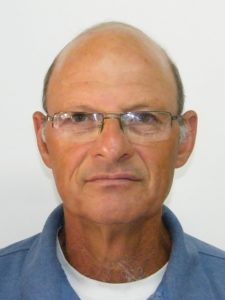Back on the street following their arrest, protesters speak out on a prime minister standing trial for alleged corruption
For the past three years, Israeli Prime Minister Binyamin Netanyahu has been investigated – and eventually indicted – for alleged bribery, fraud and breach of trust. Yet through uncanny political maneuvering and unparalleled communication skills, he has managed not only to survive, but thrive.
After three contested elections in which his right-wing bloc repeatedly received fewer seats than that led by his center-left rivals, Netanyahu has managed to salvage his political life, at least for the foreseeable future. Recent polls show an all-time high level of support for his Likud party.
But disappointment and frustration haven’t yet made all his opponents indifferent or despondent. A growing number have taken to the streets in recent weeks, unwilling to accept the fact that a man accused of some of the most severe corruption charges in the Israeli criminal code remains in office.
This weekend, thousands of protesters gathered at various bridges, intersections and highways in more than a hundred locations across Israel – just the latest round of dissent in the growing “Black Flag” movement.
The Media Line spoke with two of the movement’s leaders, newly prominent for having been among three people arrested during a demonstration held the previous weekend outside the prime minister’s official residence.
The arrests sparked outrage, leading thousands of sympathizers to arrive at the scene in a show of solidarity the following day.
“We have one demand, which is that Netanyahu resign,” Amir Haskel, one of the leaders of the protest movement, told the Media Line. “In no world can a man indicted for criminal charges act as prime minister.”
Haskel, who spent some 30 hours in jail, is a retired air force general.
“I took to the streets for the first time back in 2016,” he remembers, explaining that it was Netanyahu’s “attacks on the democratic foundations of Israel,” among other things, that drove him to act.
“We staged a march from the prime minister’s residence to [his private home in] Caesarea,” he noted. “We stood on street corners, intersections, bridges – everywhere.”

Amir Haskel (Wikimedia Commons)
Other anti-Netanyahu groups have sprung up in the wake of the investigations, perhaps most notably one that gathered each Saturday evening near the attorney-general’s home, urging him to move forward with an indictment.
In mid-March, though, the Black Flag movement further coalesced, leading thousands of vehicles from all over Israel up to Jerusalem.
“We cooperate with all of these movements, and gladly,” Haskel explained.
“In June,” he continued, “I reached the conclusion that the most important place to be was Balfour [Street] – the [location of the] prime minister’s official residence. We’ve been there 24/7 ever since. We sleep there. But the arrest was the turning point.”
With the hubbub of weekly life winding down for the Sabbath late on Friday afternoon, June 26, police alleged they were obstructing traffic and endangering drivers and pedestrians, and took Haskel and two others in.
“While under arrest, I was told we would be released on condition that we sign a commitment not to enter Jerusalem for 15 days,” the ex-military pilot said. “I refused to sign and was put under arrest for 24 hours until I could be brought [before] a judge.”
The police were eventually forced to admit that no traffic had been disturbed, and no drivers or pedestrians had been endangered. The detainees were released from custody by court order.
Haskel stresses that he is focused on one thing only.
“When his trial commenced, Netanyahu claimed it was all an attempt by the Left to bring down a right-wing government,” he said, referring to the prime minister’s now-infamous speech in a courthouse hallway during which he harangued “elements in the police, state prosecution and media,” along with the attorney-general.
“But we have nothing against the right,” he emphasized. “We have everything against a prime minister accused of criminal acts.”
But we have nothing against the right. We have everything against a prime minister accused of criminal acts
Sadi Ben Shitrit, another of the Friday afternoon detainees, tells a similar story.
“I joined the ‘crime minister’ movement about two years ago,” he told The Media Line, using the term he and fellow protesters often employ to refer to Netanyahu.
“I just got up, made a sign and went out to the street and protested,” he explained. “Every Saturday, just a friend [and I were] on the street corner.”
Ben Shitrit happens to be a cousin of Public Security Minister Amir Ohana, one of Netanyahu’s staunchest allies and defenders. He says he hasn’t spoken to his cousin, whom he calls a “sycophant” and a “poodle,” in years.
“I have an eight-year-old boy,” Ben Shitrit says, choking up. “What kind of country will he live in? They can only shut me up in one way: with a bullet to the head. If that’s what it takes, I’m willing to pay that price.”
He insists that Netanyahu is finished.
“That’s not wishful thinking. That’s a fact. Dictatorships are never toppled in the parliament or in the government. They’re toppled in the streets. And I plan to be there as long as he is in office,” he said.
“It’s a matter of a few months – he can’t stay,” Ben Shitrit insisted. “Pretty soon his own base, when they get hungry [because of the pandemic and resulting high unemployment], they’ll come out against him. It’ll be chaos in the streets.”